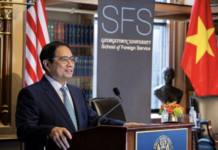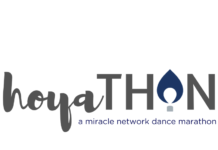![]()
Get more information and reasoning, and sign the petition, here.
There is no doubt, this is an unprecedented time. With millions of unemployment claims due to the widespread closure of non-essential businesses, and no end in sight to the virtual international lockdown, to say these are uncertain and challenging times is an understatement.
Everyone is being impacted by this pandemic, from small business owners to billionaires. This crisis is a great equalizer—money cannot buy immunity. But this is not a time to capitalize on the crisis for selfish ends, personal or political. This is a time to rally as Americans, like we have countless times in the past, and stand up to the challenge.
As a nation, when have we ever cowered from a challenge? It all began with the thirteen original colonies pulling off an underdog victory against one of history’s largest and most powerful empires, and that resolve has seen us through trial and tribulation since. The Greatest Generation turned out in droves to fight in World War II out of pure patriotism, others were drafted, and the whole nation was affected by the war effort, from dealing with rations, to working in factories whose lines were converted to wartime production (which allowed more women to enter the workforce in previously male-dominated jobs), to living under constant fear of war violence coming stateside. Similarly, the Silent Generation fought in Korea, and the Baby Boomers in Vietnam.
So, when have we ever cowered from a challenge as a nation?
Now.
Now, we have Millenials and Gen Zers continuing to pack beaches and bars, dubbing the coronavirus a “boomer remover” and doing the “coronavirus challenge” by licking toilet seats for online fame. Is this what our nation has come to? People are simply being asked to stay home for their safety, and that of others, but the burden seems insurmountable. The Invasion of Normandy may have gone differently if the youth of today were on the front lines.
That’s because the youth of today—specifically college students across the country at some of the nation’s most elite institutions, including thousands of Georgetown students—are masquerading under the banner of social justice to exploit the coronavirus pandemic to justify de facto redistributive grading policies and vilify their hard-working peers, embarking on a pet project to push for a universal grading system for the 2020 Spring semester, dissatisfied with the opt-in pass/fail system instituted at several schools.
The youth of today is not adapting to the challenge of radical changes to daily and academic life. They instead fight the shift and demonstrate their rigidity and fragility, hardly traits future employers want, but surely ones that spell doom for our nation. Focusing on Georgetown, there was a short-lived movement for a universal pass/fail system before student activists started drafting demands for a universal A/A- system. I disagree strongly with either and any universal grading system, but I will focus on the emphasized A/A- system, though my points remain the same in response to other universal systems.
Several points were raised in support of the A/A- system, running from legitimate to laughable—from online learning being inaccessible to underprivileged students, to the status quo grading system being an extension of the supposed evils of capitalism.
Following one of our guiding principles at The Georgetown Review, I will not call out individual students by name, but I will quote messages that have been sent (in this case, in the “Hoyas ’23” and “Hoyas for an Equitable COVID-19 Response” GroupMe chats) regarding the ongoing debate about grading policies for the 2020 Spring semester.
To be clear, I support the option for students to choose pass/fail for their classes, and I support the petition, linked here and above, to extend this option until after final exams. This is a difficult and unprecedented time, and some students experience more problems than others moving back home and transitioning to online learning. Of course, these students should not be penalized academically for situations outside of their control, so if pass/fail will ease their situation, I support it.
I also support individualized plans for students without reliable, or any, internet access, or who face other prohibitive circumstances. I understand the concerns over students having to “reveal their traumas” to get individualized help, but in the real world, necessary evils exist, and accepting that fact is a key step in bringing relief to those who need it without penalizing the innocent.
However, I do not buy into this notion that opt-in pass/fail does not present a real, equitable choice, since there is a stigma surrounding opting into pass/fail (while others do not opt-in, are able to improve their GPAs, and do not have to worry about negative reflections on their transcript, since employers and graduate schools tend to look unfavorably upon voluntary pass/fail).
Is there a stigma? Potentially. However, America is, and should continue to be, the land of equal opportunity, not necessarily equal outcome.
Universal pass/fail is an equal outcome, but opt-in pass/fail is an equal opportunity. There is no inequity in a universally-available binary choice. It is up to the individual, an adult college student in this case, to make a mature and informed decision. College is not an exercise in coddling, but rather preparation for the real world, where people will face more unexpected circumstances and have to make consequential decisions which they cannot simply declare as unfair.
Devaluing the hard work students put into earning good grades thus far in the semester, and artificially inflating others’ grades to ensure “everyone is on the same slate” is socialism, plain and simple. Artificially bringing down those on top (some of whom face hardship and are able to overcome it through resilience and strong work ethic) to subsidize everyone else hurts everyone, as it demoralizes the hardworking and discourages future hard work, and promotes slacking off the rest of the semester, regardless of coronavirus-induced hardship.
Now that I have explained what I do and do not support, allow me to delve briefly into why implementing a universal grading system at Georgetown, and even advocating one, is incongruent with Georgetown’s nature as an institution.
One student wrote, in support of a universal grading system, “the entire grading system is inherently elitist […] it’s also meant to create competition in situations where it’s not at all necessary (thanks capitalism),” added “one semester where we aren’t trying to constantly outdo each other in order to conform to some nonsense capitalist ideal will not kill us,” and went on to ask “can y’all answer for me why there needs to be competition in education,” before stating “competition doesn’t promote hard work, it promotes exploitation” and “competition promotes inequality and success for some at the price of the suffering of many.”
Another student chimed in, referring to competition, “It’s capitalistic and gross” before asserting that disadvantaged individuals are not protected well because of misguided “hetero, cis, white, male, and able-bodied understanding.” These comments, and ones similar to them, received numerous likes and supportive responses.
The topic of privilege was commonly discussed in criticizing those who want to maintain the current opt-in system, as student activists lambasted opponents of their policy for wanting reward or compensation for their hard work throughout the first part of the semester in the form of GPA improvement that would be rendered null in a universal pass/fail system and devalued in a universal A/A- system. These opponents were accused of having disordered priorities in the midst of a pandemic and were attacked ad hominem as racist, elitist, and classist, among other insults.
No one said grading or GPA was a top priority, but it is most certainly a priority. We are students. This is school. Doing work, striving to do well, and being motivated by personal pride or prospects of good jobs and graduate schools is the story of our lives. Motivation, intrinsic and extrinsic, drives productivity and progress (“thanks capitalism,” unironically). Demonizing motivation, and vilifying the motivated, is toeing a dangerous line of Marxism and collectivism, which has killed a mind-numbing number of people, but not nearly the same number of people capitalism has helped through ever-rising standards of living.
Besides the dangers of socialism as a concept, and the growing popularity of the progressive far-left among young people, it is laughable that people with these beliefs attend Georgetown University. If you are against competition, capitalism, and compensation for hard work, Georgetown is not the place for you.
Georgetown Statistics
- Georgetown just had a record-low acceptance rate (11.7% for Early Action applicants in the Class of 2024), and applicants likely led lives of competition in every regard to win a coveted spot.
- Georgetown is home to students whose families earn a median income nearly five times the national median ($229,100 and $51,939, respectively, as of 2013).
- Georgetown is among the most expensive colleges in the nation, and it produces remarkably successful graduates, ranking third in median salaries ten years after graduation and thirteenth in mid-career pay.
Georgetown prides itself on accomplishment and prestige, and rightfully so. As an institution, Georgetown worked hard to establish itself as a premier university and a global brand. As students, we worked hard and sacrificed to get here, and we should be proud of our achievements (and work to defend them against detractors).
Charlie Kirk—who, along with Eric Trump, The Georgetown Review and Georgetown University College Republicans hosted last month—and with whom I disagree frequently, put it best:
“I hear about all this privilege, and yet I never hear about Georgetown privilege. Every single one of you are part of a country club. […] You are unbelievably privileged to go to this school, and you probably deserve it, because I believe in hierarchies, and you are lucky to be here, and I hope you know you are lucky.. […] But don’t gallivant around and say, ‘we’re anti-hierarchy.’ You’re part of a hierarchy here at Georgetown University, one of the most elite schools in the world. […] However, it is unbelievably hypocritical to be a socialist while you go to an elitist institution that is going to give you an extra level of advantage, favor, and, yes, privilege, that the person at Hagerstown Community College is never going to have for the rest of their life.”
We are Georgetown students. We are intelligent, hardworking, and passionate. There is no obstacle or hardship we cannot overcome if we apply ourselves. Our abilities have gotten us this far, so why cop-out now? To us, these challenging times should be embraced as opportunities to strengthen our character and confirm our flexibility and resilience, not excuses to push a misguided and counterproductive agenda.
Justin Drewer (COL ’23) is an Editor-in-Chief of The Georgetown Review.
Disclaimer: The views and opinions expressed in this article are those of the author(s) and do not necessarily reflect the official or personal position of the Editorial Board, Contributors, or Business Staff of The Georgetown Review.












